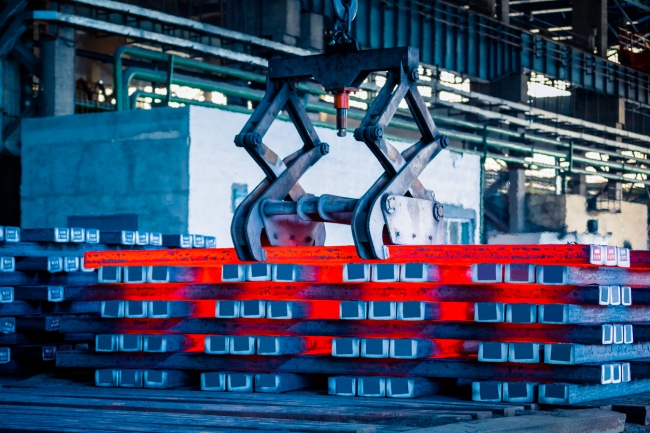2 minute read • published in partnership with Ward CNC
Feature: The reasons why steel production in the UK is still alive today
We see a lot of talk about how steel production in the UK died off a long time ago. But is this really the case? There are currently around 35,000 jobs in the steel industry in the UK, and in 2022 the sector made a £2.4bn direct contribution to UK GDP and supported a further £3.1bn in supply chains.
Ward CNC explores a few reasons why steel production in the UK is still alive today.

The steel industry in the UK provides 35,000 jobs, and in 2022 the sector made a £2.4bn direct contribution to UK GDP / Picture: Getty/iStock
1 – High levels of UK government investment
The steel industry in the UK has benefitted from increased infrastructure investment from the UK government. This year, the UK government offered £600 million of investment to help Britain’s 4 steel blast furnaces, with a particular focus on the money helping them switch to using lower-emission technologies.
This is a sign of the UK government realising the importance of having a strong growing steel industry to aid major infrastructural development, such as roads, bridges, and large railway projects such as HS2.
2 – High foreign investment
Major foreign investments are another reason why steel production in the UK is still alive and growing today. British Steel was acquired by leading Chinese multi-industrial company Jingye Group in March 2020, for instance.
3 – Technological Advancements
The steel industry in the UK has also reaped the rewards of embracing ever-evolving technological innovations. Modern advancements such as digitalisation and machine automation have contributed to steel producers in the UK streamlining their operations, reducing costs, and increasing productivity and output.
The UK has a rich steelwork history, especially in regions such as Sheffield in South Yorkshire. In Sheffield today, there are still innovative leading UK CNC machining tool suppliers embracing technological advancements in the digitalisation and automation of machinery and doing their bit to help keep the UK’s steel production traditions alive and well.
4 – Demand remaining high for steel domestically and internationally
Steel can be required for a broad range of applications. Infrastructure projects, construction for housing, industrial expansion, and manufacturing have led to the increased demand for steel in the UK, further boosting the levels of steel production in this country.
Global steel demand has remained high, allowing British steel manufacturers to expand into export markets in Europe and other parts of the globe, thus bolstering the industry.